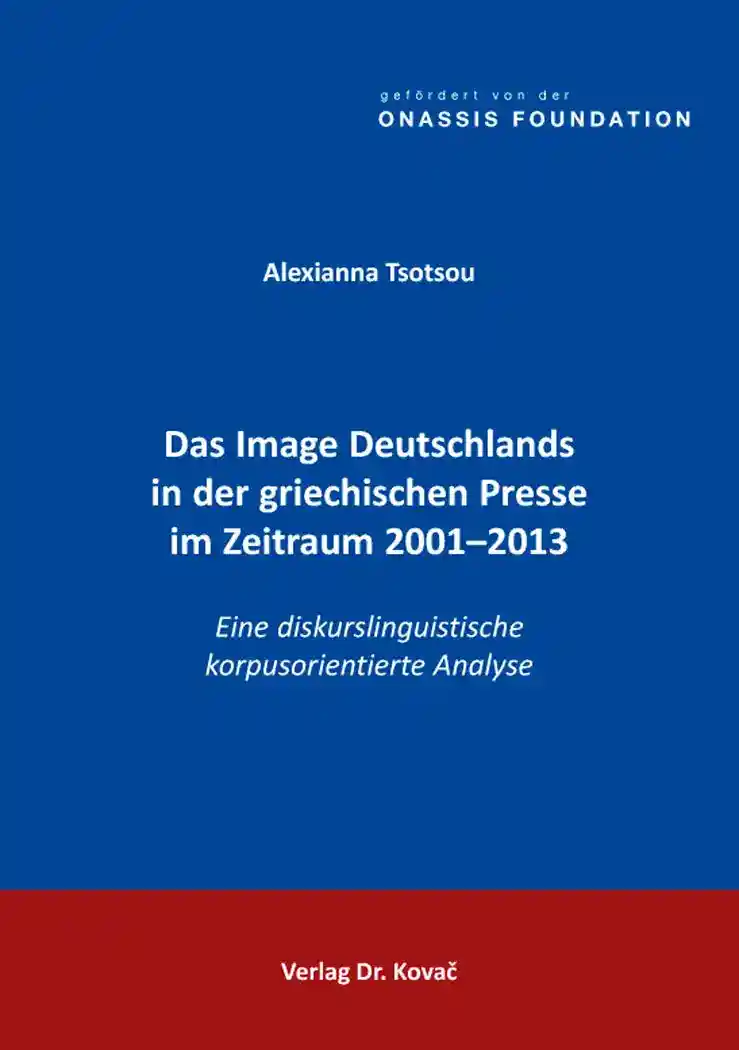Alexianna TsotsouDas Image Deutschlands in der griechischen Presse im Zeitraum 2001–2013
Eine diskurslinguistische korpusorientierte Analyse
Schriften zur Medienwissenschaft, volume 45
Hamburg 2019, 526 pages
ISBN 978-3-339-10338-3 (print) |ISBN 978-3-339-10339-0 (eBook)
About this book deutschenglish
Since 2010, with the onset of the financial crisis in Greece, one can see many headlines from Greek newspapers presenting negatively Germany and its role in the fight against the crisis, relating it to World War II.
Nevertheless, one may ask whether the whole discursive representation of Germany in various Greek newspapers and in other time periods has the same characteristics. On the occasion of the financial crisis, the role of Germany and the stance of the Greek press, arise many questions. What was the image of Germany in the Greek press before the financial crisis? Is this image uniform in the various newspapers? How and why has it changed over time? Is there a stable part of the image? Which role does the language play in constructing this image?
The book tries to answer these questions. In addition, the theoretically and methodologically indeterminate concept of image as the representation of Germany in the Greek press have been little researched so far. The aim of the study is to fill these gaps, define the concept of image and examine the discursive representation of Germany in the Greek press interdisciplinary. Its scientific context is Critical Discourse Analysis combined with Corpus Linguistics, Linguistic Image Analysis, Social Psychology and Media Studies.
The subject of the book is up-to-date and highlights the relationships between countries in the Eurozone as well as the influence of the mass media on these relationships. In this sense, it is interesting to explore how the Greek press represents the most powerful player in the Eurozone. The research period is composed of years before and after the Greek crisis in order to simplify the comparison between the time periods.
The study reveals the country-specific and cross-national aspects of Germany's image. It contributes to the understanding of the discourse’s implications in geopolitical circumstances and the relations between Germany and other European countries, as well as to improving the intercultural communication and media practice. It also leads to a deeper understanding of the construction of the out-group, details all the methodological steps to describe the image and sheds light on how the ideologies are reproduced by the mass media.
Kontaktmöglichkeit
Keywords
Allgemeine SprachwissenschaftDeutschlandimagegriechische Finanzkrisegriechische PresseImageKritische DiskursanalyseLinguistische ImageanalyseMedienlinguistikIhr Werk im Verlag Dr. Kovač

Möchten Sie Ihre wissenschaftliche Arbeit publizieren? Erfahren Sie mehr über unsere günstigen Konditionen und unseren Service für Autorinnen und Autoren.
